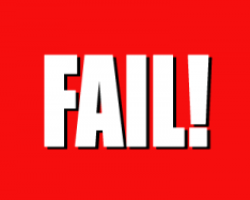
DISTRICT COURT OF APPEAL OF THE STATE OF FLORIDA
FOURTH DISTRICT
SOSA and ALEX AMADOR,
Appellants,
v.
U.S. BANK NATIONAL ASSOCIATION,
Appellee.
No. 4D13-1657
[December 10, 2014]
Appeal from the Circuit Court for the Fifteenth Judicial Circuit, Palm Beach County; Howard H. Harrison, Judge; L.T. Case No. 502008CA035877.
Andrea H. Duenas of the Law Office of A. Duenas, P.A., Lantana, for appellants.
Marc James Ayers of Bradley Arant Boult Cummings LLP, Birmingham, Alabama, for appellee.
STEVENSON, J.
Alva Sosa and Alex Amador (“Homeowners”) appeal from a final judgment of foreclosure. U.S. Bank National Association (“Bank”) is the appellee. Finding the trial court erred in determining Bank had standing to initiate the foreclosure action, we reverse.
Facts
Bank filed its foreclosure complaint in November 2008. It attached to this complaint a copy of the mortgage but not a copy of the note, as Bank was originally seeking to enforce a lost note. Homeowners answered and raised lack of standing as an affirmative defense. The case proceeded to trial where, through the testimony of Bank’s one witness, the original promissory note was submitted into evidence, and final judgment was entered in favor of Bank.
Analysis
“We review the sufficiency of the evidence to prove standing to bring a foreclosure action de novo.” Lacombe v. Deutsche Bank Nat’l Trust Co., 39 Fla. L. Weekly D2156, D2157 (Fla. 1st DCA Oct. 14, 2014) (citing Dixon v. Express Equity Lending Grp., LLLP, 125 So. 3d 965 (Fla. 4th DCA 2013)). “[T]he plaintiff must prove that it had standing to foreclose when the complaint was filed.” McLean v. JP Morgan Chase Bank Nat’l Ass’n, 79 So. 3d 170, 173 (Fla. 4th DCA 2012). Relevant here, “[w]here the plaintiff contends that its standing to foreclose derives from an endorsement of the note, the plaintiff must show that the endorsement occurred prior to the inception of the lawsuit.” Id. at 174. A plaintiff can establish standing through an affidavit of ownership, wherein standing is established “if the body of the affidavit indicates that the plaintiff was the owner of the note and mortgage before suit was filed.” Id. A witness who testifies at trial as to the date a bank became the owner of the note can serve the same purpose as an affidavit of ownership.
At trial, Bank introduced the original note and the allonge to note through a senior litigation analyst with Bank’s servicer. The original note contained an undated special endorsement in favor of Exam Financial Group, LLC, while the allonge to note contained an undated special endorsement in favor of Bank. Because the original note and the allonge to note were filed after Bank filed its foreclosure complaint, and each contained undated special endorsements, Bank had to establish standing through the testimony of the litigation analyst. It failed to do so.
Here, the analyst never stated when Bank became the owner of the note. He gave the date of the first endorsement found on the allonge to note, but he did not discuss the date of the second endorsement found on the allonge. The second endorsement found on the allonge to note was the pertinent one as it was the one which specially endorsed the note to Bank. See McLean, 79 So. 3d at 174 (reversing summary judgment because the bank filed the original note with a special endorsement after it filed its complaint, the special endorsement was not dated and there was no evidence as to when the special endorsement was made). Although the analyst testified that Ocwen (Bank’s servicer) came into possession of the note prior to filing the foreclosure action, such testimony is not dispositive as it is still unclear when Bank, through the placement of the special endorsement, became the owner of the note.
Because Bank failed to establish when it became the owner of the note, the trial court erred in finding Bank had standing to initiate the foreclosure action. Accordingly, we reverse the final judgment of foreclosure and remand for entry of an order of involuntary dismissal of the action. See Lacombe, 39 Fla. L. Weekly at D2158 (“We decline to remand the case for presentation of additional evidence because ‘appellate courts do not generally provide parties with an opportunity to retry their case upon a failure of proof.’” (quoting Morton’s of Chicago, Inc. v. Lira, 48 So. 3d 76, 80 (Fla. 1st DCA 2010))).
Reversed and Remanded.
DAMOORGIAN, C.J., and GROSS, J., concur.
* * *
Not final until disposition of timely filed motion for rehearing.
© 2010-19 FORECLOSURE FRAUD | by DinSFLA. All rights reserved.



